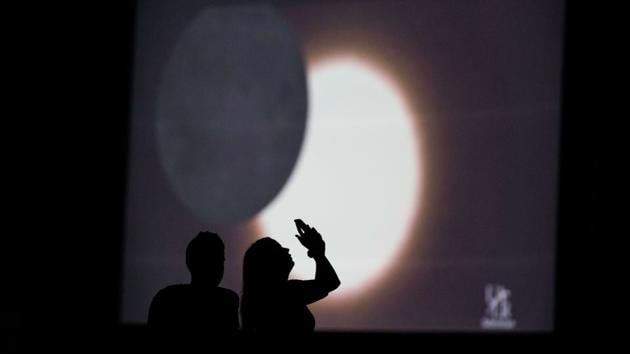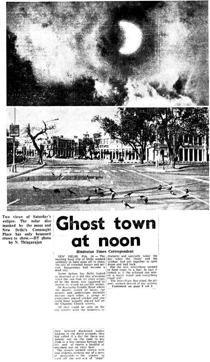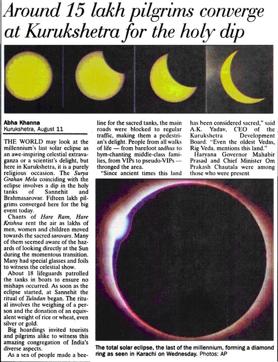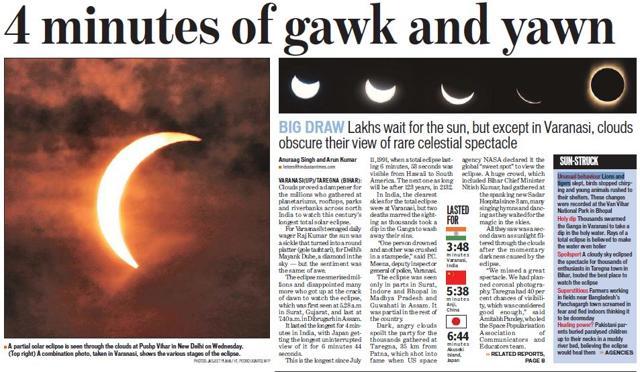When darkness falls: Here’s how HT covered major solar eclipses in India
Here is how HT reported total solar eclipses witnessed in India.
A total solar eclipse will be visible in North America on Monday, as the moon completely obscures the sun. During the celestial event, the moon will pass between the sun and Earth and block all or part of the sun for up to about three hours, from beginning to end.

This eclipse will not be visible in India -- only people in North America and certain parts of South America and Africa will be able to witness it . But world over, people are following the great celestial event with interest.
Here are the front pages of Hindustan Times from the previous total solar eclipses witnessed in India in recent memory:
February 16, 1980
The first total eclipse witnessed in independent India inspired a great deal of interest in the general public, students, researchers and scientists who studied the phenomenon. The path of totality fell over places in India such as Hubli, Raichur, Nalgonda and Konark.
The Indian Institute of Astrophysics (IIA) established camps for observations at Hosur near Hubli and at Jawalgera near Raichur, in Karnataka. The Jawalgera Camp, with its 68-foot steel tower housing equipment, was a great media and public attention. Czech and Yugoslav research teams also camped with the IIA, to observe the total eclipse.

October 25, 1995
On October 25, 1995, a total solar eclipse was witnessed in Middle East, Asia, Indonesia. In India, the eclipse was witnessed on the day of Diwali celebrations.
The Indian Institute of Astrophysics established observation camps along the path of totality, but the camps at Neem ka Thana in Rajasthan and Kalpi in Uttar Pradesh were fitted with modern equipment.
This was India’s first fully televised solar eclipse, with Doordarshan telecasting live updates.

August 11, 1999
A total solar eclipse occurred on August 11, 1999, the last of the previous millennium. The eclipse was witnessed in parts of Europem through the Black Sea, Iran, southern Pakistan and Srikakulam in India before ending in the Bay of Bengal.
Pilgrims rushed to take a

July 22, 2009
A total solar eclipse lasting 6 minutes and 39 seconds was witnessed off the coast of Southeast Asia and ignited interest in China, Japan, India, Nepal and Bangladesh. In India, clouds played spoilsport leading to poor visibility, except in Varanasi. Pilgrim gathered on the banks of Ganga in Varanasi to witness the event
This was the longest total solar eclipse to occur in the 21st century, and will not be surpassed in duration until 13 June, 2132.






